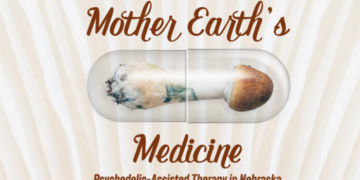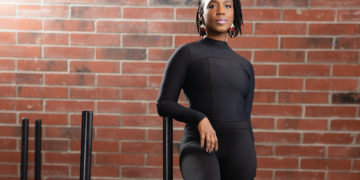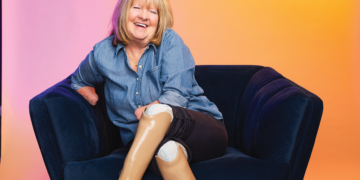Cancer, glaucoma, HIV/AIDS, Hepatitis C, ulcerative colitis, PTSD, anxiety, chronic pain, opioid addiction, severe and persistent muscle spasms, epilepsy, and seizures—these are some of the ailments that State Sen. Anna Wishart’s bill, LB110 (“Adopt the Medical Cannabis Act”), would potentially help treat through the creation of a Cannabis Enforcement Department tasked with reviewing and approving applications for medical cannabis use.
Intractable epilepsy, in particular, led to the U.S. Food & Drug Administration’s approval of Epidiolex—the only drug derived from cannabis that is approved at the federal level. Unlike the broad classification of medical cannabis—which also includes cannabis with high concentrations of tetrahydrocannabinol (THC)—Epidiolex has been refined to remove THC and its associated psychoactive properties. In other words, Epidiolex won’t get you high. Likewise goes the claims of other CBD products not yet approved by the FDA.
Epidiolex is the subject of an ongoing University of Nebraska Medical Center research study in Omaha, and it’s available by prescription. Meanwhile, across Nebraska, non-prescription CBD health products have become increasingly available despite unclear legality.
With CBD products proliferating across the Omaha metro, writer Sean McCarthy set out to explore the story of CBD in Nebraska from varied perspectives. He spoke with the Omaha-based startup Populum. He investigated diverging enforcement practices. He met with holistic health providers and farmers who believe cannabis production would benefit Nebraska’s agricultural economy.
McCarthy focused on the story of CBD from a legal perspective. But there is also a medical side to the story that is important. To touch on the medical story of CBD, Omaha Magazine spoke with Nikki Perry. In 2018, her 9-year-old son, Max, began taking CBD to treat his severe seizures. She shares their experiences with epilepsy and Epidiolex:
How have seizures affected your son’s life?
r
“Max was diagnosed with epilepsy at age 4. He’s had febrile seizures since he was 18 months old. He has focal epilepsy in his left temporal lobe. Max has had two brain surgeries to stop his seizures. The first at the University of Nebraska Medical Center and the second at New York University’s Langone Comprehensive Epilepsy Center. Neither surgery has eliminated his seizures. Max has tried at least seven different seizure medications, and he has an implanted vagus nerve stimulation device.
“He has a very hard time tolerating the many types of medications. He’s had many different side effects ranging from changes in appetite to changes in behavior. They can cause aggression, depression, lack of impulse control, obsessive-compulsive disorder, hypersensitivity to light, lack of sweating, loss of social skills, rash, and the list goes on. He has to have blood work regularly and his body gets used to the meds, so they need to be increased often, yet higher doses cause more side effects.
“It’s taken years to find a combination that allows him to function. He is currently on three seizure medications and three behavior medications. He was also diagnosed with autism at age 5. Epilepsy affects every part of his daily life. He can have seizures from heat, lack of sleep, stress, changes in medications, and illness. Needless to say, it’s been difficult.”
Were you apprehensive to introduce CBD in your son’s treatment regimen?
r
“Absolutely, we felt apprehension before starting. The stigma around CBD is very high. However, Max’s neurologist at NYU—Dr. Orrin Devinsky, who helped pioneer studies for Epidiolex approval—was very helpful in answering any questions we had. Also, seeing other children’s success and going through the heartache of watching your child continue to have seizures and not be able to do a damn thing, as a parent, you will try anything. Max was on so many other medications that it couldn’t hurt. In addition, you have to tell yourself, it won’t make him high, it doesn’t have THC.”
How have you advocated for CBD as a treatment option?
r
“The fight to get CBD approved has been long. I want the public to remember, CBD doesn’t have THC. It’s not having your child smoke a joint. It’s an FDA-approved medication that could have life-changing results. It’s a very responsible thing to do as a parent. A few years back, representing helpless parents like myself, I spoke to the Nebraska Legislature and told Max’s story. There were many other families with stories much like our own. There were children having more seizures and fewer seizures than Max. Witnessing this disease is heartbreaking. Thirty percent of people with epilepsy are resistant to medications. Lack of seizure control is the biggest problem, and not being able to get access to a medication that very well could eliminate seizures because of a stigma just isn’t fair.”
r
Read additional Nebraskan perspectives on the medical use of cannabis (from which CBD is derived) in this online exclusive content, “2019 Medical Cannabis Op-Eds: From the Governor, a Colonel, and a Drug Dealer.”
rA photo of Max and Nikki Perry is featured in the March/April issue’s cover story, “The Confusion of Cannabidiol.”
This letter was printed in the March/April edition of Omaha Magazine. To receive the magazine, click here to subscribe.r













